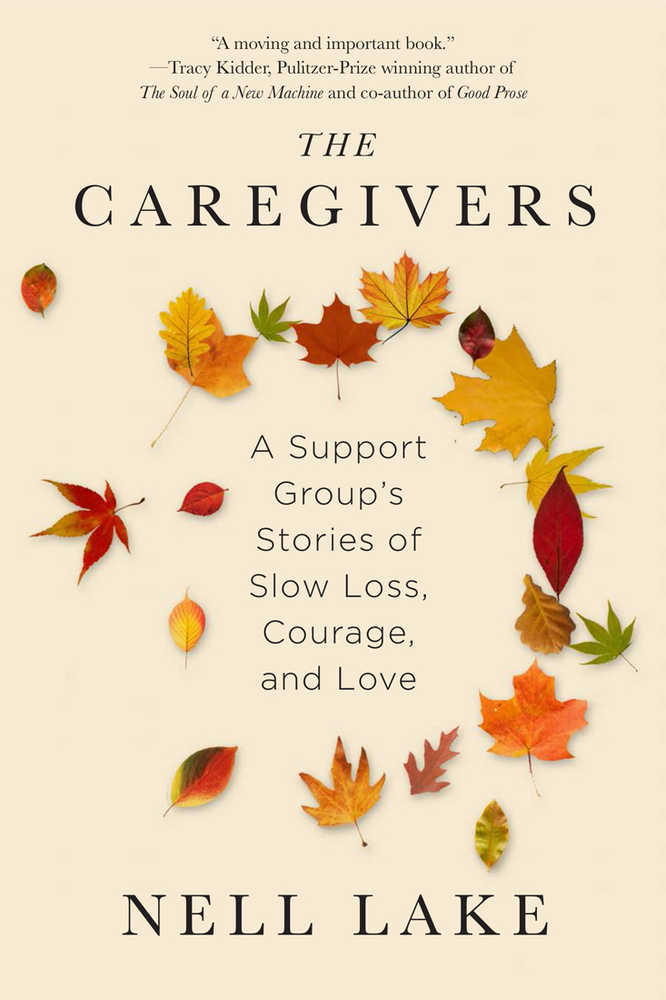For better, for worse.
You promised that once, and you meant it. For richer, for poorer was okay, too; you’d do it together. And over the years, that’s how it happened… until you got to the last part.
In sickness and in health.
You hoped it would be more of the last part, less of the first, but life doesn’t turn out like that. And in the new book “The Caregivers” by Nell Lake (c.2014, Scribner, $26, 304 pages), you’ll see how one group of spouses (and children) dealt with it.
Though her grandmother had never been demonstrative, Nell Lake knew the woman loved her. Hildegard was “elegant, German, unadorned, restrained,” independent, strong-willed, and active. And when she found out that some pain she was having “could mean” cancer, she committed suicide.
Hildegard possessed dignity and grace while alive, Lake says, but she missed “the intimacy that may come with tending and being tended to” while dying. Fear of “the shadow part of life” followed Lake, too, so she decided to immerse herself in a “group of people living in that shadow.” She joined a support group for caregivers of those with dementia and Alzheimer’s.
Eighty-eight-year-old Daniel suffered from recurring cancer while caring for his much younger wife; she was depressed, bi-polar, and had myriad other severe health issues. William married the love of his life shortly after World War II, then watched as she was overtaken by dementia. Liz struggled with guilt for putting her abusive husband in a veteran’s home due to his Alzheimer’s. Inga, who’d cared for and lost a daughter, aunts, and both parents, was caretaker for her partner, Louise, who was recovering from multiple surgeries. Rufus tended a friend who’d died, but kept returning to the group anyhow. And Penny, who’s featured most in this book, cared for her mother with humor, good-natured teasing, frustration, and the sometimes-surprising support of her siblings.
Throughout the year, there was sadness and loss but “Moments of loveliness arise,” too. Taboo subjects were tackled, and friendships formed. And through it all, group members learned to grieve someone who was gone, but who was still around…
I struggle with what to say about “The Caregivers” because, truthfully, it made me so profoundly sad.
And yet, I know there’s comfort in what author Nell Lake has to say, as well as advice that’s solid-but-subtle wrapped inside one of the more powerful stories you’ll ever read. Lake brings each of her pseudonymous subjects alive so well that when they’re stricken, we’re also stricken — and there’s a lot of that in this book.
What made me stick with it, though, I think, is the compassionately wistful sweetness mixed with resigned, gotta-keep-moving outrage that’s here. Lake’s ability to repeatedly remind us of the former is like a gentle slap. The latter, however, is why you’ll keep reading.
For Boomers who are squinting into the future, or anyone who’s already in a caregiving position, bring tissues and find this book. I’m not sure I’d call it light reading, but “The Caregivers” might make you feel better.
The Bookworm is Terri Schlichenmeyer. Enail her at bookwormsez@yahoo.com.

